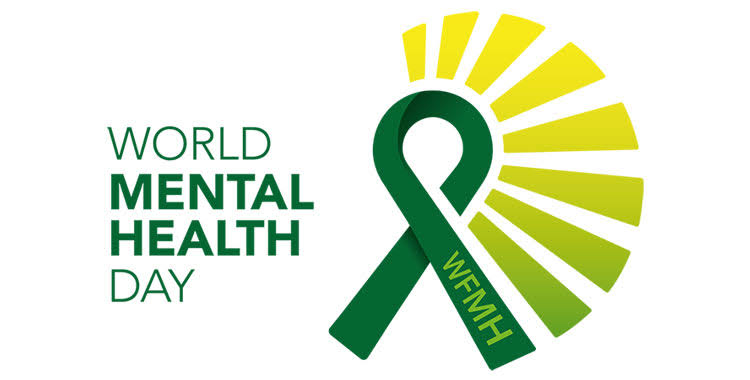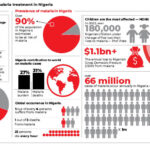Nigeria on Thursday, October 10, 2024, joined the rest of the international community to observe the World Mental Health Day. The day was set aside to reflect and suggest ways to address issues pertaining to mental health and how to improve the mental health of the citizens.
The theme for this year’s World Mental Health Day is: ‘It is time to prioritise Mental Health in the Workplace’. It is designed to highlight various aspects of mental health at work, from workplace conditions and stress management to the importance of social inclusion and empowerment. The goal is to also champion mental health in the workplace and build best practices that create cultures where workers have the potential to contribute productively and thrive.
According to the Minister of Health and Social Welfare, Professor Ali Pate, mental health issues, such as depression and anxiety, are pervasive in workplaces globally, impacting productivity, attendance, and overall performance.
Speaking at an event to mark the day, he said the federal government was committed to changing this narrative and had launched the National Mental Health Policy 2023, which is focused on mental health promotion and decentralisation of mental health services in Nigeria.
- Bandits impose N11m levy on Niger farmers to harvest crops
- Devaluing our future: World Bank, IMF as destabilising forces
The policy, he said, is to improve mental health in workplace, including encouraging employers and employees to develop health policies for the workplace, which include MNS promotion, prevention, access to treatment and rehabilitation.
It is also to prevent work-related mental health conditions by minimising or eliminating work-related stressors using organisational interventions to reshape and modify working conditions, cultures and relationships.
It will also protect and promote workplace mental wellbeing through training and interventions that increase mental health literacy, improve recognition and response to common mental health conditions at the workplace, and empower workers to seek support and help when needed.
He said as part of efforts to improve the availability of mental health services delivery in the country, Nigeria has set a global record as the first country to contextualise the World Health Organisation’s (WHO) Mental Health Gap Action Programme (mhGAP) version 3.0.
Pate said it would address the mental health treatment gap in the country and strengthening human resources development for mental health service delivery in Nigeria
We at the Daily Trust welcome this effort by the federal government to align itself with the international effort to address the issues pertaining to mental health of the country’s workforce. However, we believe that the day should also be used to reflect generally on issues of the mental health of the citizens.
This is imperative in view of the current high cost of living, unemployment and general condition of the average Nigerian. It is further worsened by the state of mental health care in the country.
According to the President of the Association of Psychiatrists in Nigeria (APN), Prof. Taiwo James Obindo, one in four Nigerians suffers from mental illness, which translates to over 60 million Nigerians suffering from one form of mental illness or the other.
He said the situation was further worsened with the high cost of drugs and the extremely low number of health personnel attending to the patients.
“So, we have had increase in the number of people who have mental illnesses, and increase in relapses among those who have had the illness because they find it difficult to access care and able to afford their drugs. The cost of drugs has gone up significantly”, he said.
Figures available also show that there may be less than 200 psychiatrists to cater of 240 million Nigerians, which translates to having one psychiatrist to over a million of the population. The recommendation by WHO is one to 10,000.
This is because many of the nation’s psychiatrists have left the country for greener pastures.
Added to this is the poor state of many mental health facilities where they even exist. Most of them are in a state of total neglect and barely have modern equipment to work with.
The federal government is also yet to start implementing the provisions the Mental Health Act, which provided for better handling of mental health issues. The Act, which replaced the Lunacy Act of 1916 and signed into law in January 2023, provides a significant legal framework for mental healthcare and substance abuse while delving into how the society deals mental ill-health.
Given all the issues at stake we believe that it is time for both the government and the larger society start given mental health issues the attention they deserve.
We can begin by ensuring the immediate implementation of the Act with the view to bringing our handling of mental health issues at par with the current trends worldwide.
The government, at all levels, should also bring up more palliatives to relieve the suffering of many Nigerians who are at their wits end in view of the current situation they found themselves. The government could also further assist the situation by taking a critical view of our mental health facilities to ensure they are not only adequate but can provided the needed care they are expected to give.
Equally crucial is the role of every Nigerian to bring relief to his/her fellow compatriots, especially at this time of difficulty. We urge all Nigerians to take this seriously by being our brothers’ and sisters’ keepers.

 Join Daily Trust WhatsApp Community For Quick Access To News and Happenings Around You.
Join Daily Trust WhatsApp Community For Quick Access To News and Happenings Around You.


